Investigation
About The Secret Glory film
The Secret Glory has been released as a part of Subversive Cinema's Dust Devil box-set.
The Secret Glory tells the story of Otto Rahn (1904-1939), who worked in Ahnenerbe (Ancestral Heritage Society), a Schutz-Staffel division in the Nazi Germany. Rahn was convinced he knew where to find the Holy Grail and after being nominated an SS officer, he finally had the resources to pursue it.
"What [Rahn] discovered remains as mysterious as the stories surrounding his untimely death in 1939, but with rare archival footage, old letters and photographs Stanley manages to conjure up the vision of a grand quest, which began in the 13th century and hasn't lost its alluring power until today." [Taken from the Oldenburg Film Festival website.]
Otto Rahn in Jones' Celtic Encyclopedia
b. February 18, 1904; Michelstadt, Germany.
d. March 13, 1939; Tyrolean Mts.
Poet, mystic, and Nazi researcher. Rahn was obsessed with two ideas--the Holy Grail and the Cathars, medieval French heretics; while in college, he had intended to write a dissertation on the hypothetical Kyot, the supposed troubador who gave Wolfram von Eschenbach the story of Parzival.
In 1929, he made a special trip to the Languedoc region of Southern France, a hotbed of Catharist activities in the thirteenth century. He began excavating at Montsegur, the last Cathar stronghold to fall to the Inquisition. Legend had it that the Cathars had a great treasure which was never found, but hidden deep in the mountainside. Rahn was convinced that this treasure was the Holy Grail, and he intended to find it.
Baudino Mario - IL MITO CHE UCCIDE. Dai catari al nazismo: l'avventura di Otto Rahn l'uomo che cercava il Graal e incontro Hitler
Alla fine degli anni Venti un giovane e brillante storico tedesco, Otto Rahn, giunge per la prima volta in Provenza, sulle tracce del Santo Graal, la mitica reliquia la cui storia è strettamente connessa con quella dell'eresia e della persecuzione dei càtari durante il Medioevo. Attraverso i meandri di questa vicenda, avvolta tra realtà e leggenda, l'autore ripercorre con ampio respiro narrativo una delle pagine più fosche della storia europea. Rahn finirà per essere cooptato dai dirigenti nazisti che intendono rilanciare il mito "ariano" del Graal, promuovendo vere e proprie spedizioni di ricerca anche dopo la misteriosa morte del giovane studioso, avvenuta nel 1938, a soli trentaquattro anni.
Dati 2004, 256 p., rilegato
Editore Longanesi
Intervista a Mario Baudino: Otto Rahn, il cacciatore del Graal perduto
Cercava il Graal, trovò il nazismo. Mario Baudino< ha ricostruito nel Mito che uccide la storia di Otto Rahn, l'intellettuale tedesco largamente responsabile non solo del moderno successo turistico della Linguadoca, il ”Paese Cataro“, ma soprattutto della mitologia secondo cui i catari, gli antichi eretici del Midi francese, possedevano il Sacro Graal. La vita, breve, di questo misterioso e contraddittorio personaggio, morto suicida nel 1939 poco prima che scoppiasse la Seconda Guerra mondiale, ha lasciato dietro di sé un cumulo di leggende, trasformandolo in un eroe dell'occultismo. La verità storica, raccontata con piglio romanzesco in una ”inchiesta sul passato“ dove nulla è inventato, frutto di attente ricerche in Francia e in Germania, è invece diversa, anche più affascinante. Rahn incarna la figura dell'intellettuale novecentesco che stringe col potere totalitario un patto col diavolo, da cui viene stritolato. E nello stesso tempo è il maggior architetto di una favola destinata a sopravvivergli, ancor oggi molto popolare il tutto il mondo, che associa la mistica coppa cercata dai cavalieri di Artù all'eresia del XII e XIII secolo, ai templari, e infine ai nazisti.
Raiders of the Lost Grail
Berlin between the wars was a city known throughout Europe for its bohemian subculture of young intellectuals. Amongst the personalities who hotly debated the many modernist “isms” that were fracturing the old ideological certainties which had glued together the 19th century, few individuals were more colourful than a dark-haired, green-eyed young man named Otto Wilhelm Rahn. His gaunt figure, swathed in characteristic black coat and fedora, casts a long shadow out of those twilight years, a ‘great silhouette’ around which the most extravagant myths accrued. He was variously said to be a Mason, a Rosicrucian, a Luciferian, an agent of the Thule Gesellschaft, an initiated Cathar and even the leader of an obscure, international secret society. As author Philip Kerr puts it, Rahn’s contemporaries might not have been surprised to see “the Scarlet Woman and the Great Beast come flying out of the front door” of his apartment on Tiergartenstrasse. One of his Nazi peers in Heinrich Himmler’s Black Order remarked in an internal memo that he “half suspected Rahn of being in league with the little people”. To this day, it is widely believed that this enigmatic young man knew the whereabouts of one of the most sacred relics in all Christendom – the Most High Holy Grail. But the truth is stranger still…
Mario Baudino
Mario Baudino (Chiusa di Pesio, 1952) è un giornalista, saggista e poeta italiano. Scrive per il quotidiano di Torino La Stampa.
Ha esordito come poeta nel 1978 contribuendo al volume antologico La parola innamorata. Due anni dopo ha pubblicato Una regina tenera e stupenda. Ulteriori suoi lavori sono stati, nel 1988, la raccolta di poesie Grazie (Premio Montale) e nel 1999 Colloqui con un vecchio nemico (vincitore l'anno successivo del Premio Brancati ). Per Guanda ha pubblicato nel 2006 Aeropoema.
Baudino ha dato alle stampe nel 2001, per la collana di saggi della casa editrice Ponte alle Grazie, Voci di guerra. 1940-1945. Sette storie d'amore e di coraggio. Alla seconda guerra mondiale si ricollega anche il saggio storico Il mito che uccide (Longanesi, 2004 ) che racconta le vicende di Otto Rahn, l'uomo che cercava il Graal< e incontrò Hitler.

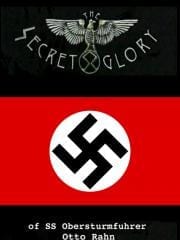
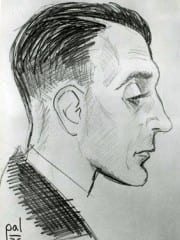
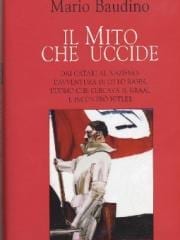
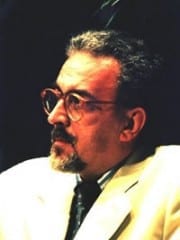
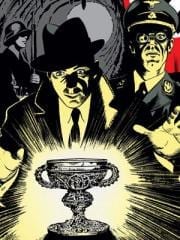
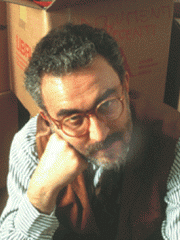
Recent comments
13 years 50 weeks ago
13 years 50 weeks ago
13 years 51 weeks ago
13 years 51 weeks ago
14 years 2 weeks ago
14 years 7 weeks ago